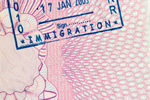Buying a Luxembourg property makes sense for expat professionals

Buying a Luxembourg property makes sense for expat professionals
In this small, select corner of Europe, the first realisation for expats keen to buy a home is that demand is far greater than supply, meaning house prices are high and anything that’s worth buying sells very quickly. Local real estate agents call this ‘fast-paced and competitive’, but expats looking to settle into a new life may well use other terms whilst desperately attempting to prioritise their search criteria.
Getting a global view of Luxembourg’s property market is best done online, as some 90 per cent of interest in the small state's homes for sale begin with real estate searches. Email alerts can let you known when a suitable property is placed on the market, but leaving it a few days before viewing is normally too late. If settling into a new job is taking priority, authorising an agent to respond on your behalf can ensure you don’t miss out.
Luxembourg and its city of the same name are the perfect locations for ambitious expat professionals as they’re multicultural, with a high percentage of the total population originating from overseas. Residential districts aren’t segregated, either deliberately or by accident, meaning new arrivals can choose to live anywhere they please. Once you’re ready to formally househunt, defining your objectives well in advance will save time and give you the best chance of finding your dream home before it’s snapped up.
For those needing mortgages, required documents include between three and six months’ payslips, a salary certificate from your employers, repayment plans on any other property held, proof of savings and/or rental income, consumer credit details and, of course, a deposit. Once financing is secured, the deal will take around three months to finalise.
Even although property prices are high, a first purchase is as close as you’ll get to a safe bet, as the country is in its growth stage, real estate is very desirable and interest rates are set at a low, fixed rate 1.7 per cent. Over the past year, growth of 10 per cent on apartments and 12 per cent on houses has been seen, with no economic or other reason why the gains should not continue or even improve.
Related Stories:
- Expats find peace in the covid-19 refuge of Dahab town - July 20, 2020
- Expats in Malaysia still banned from overseas travel - July 17, 2020
- HSBC Asia to cut back on internal expat relocations - July 16, 2020
- China hits its expats with 45 per cent tax on overseas earnings - July 15, 2020
Latest News:
- Tips on a trouble-free relocation as an expat overseas - July 20, 2020
- Expats find peace in the covid-19 refuge of Dahab town - July 20, 2020
- Is Kuwaitization the unintended result of the oil price crash? - July 20, 2020
- Expats unhappy abut changes to Korean points-based visa system - July 17, 2020
- Chiang Mai and Bangkok no longer bargain locations for expats - July 17, 2020
- Expats in Malaysia still banned from overseas travel - July 17, 2020
- Vietnam welcomes expats to its safe, affordable lifestyle - July 16, 2020
- Asian tiger economies reach out to expats in Hong Kong - July 16, 2020
- HSBC Asia to cut back on internal expat relocations - July 16, 2020
- Tips on integrating for newly-arrived expats - July 15, 2020


